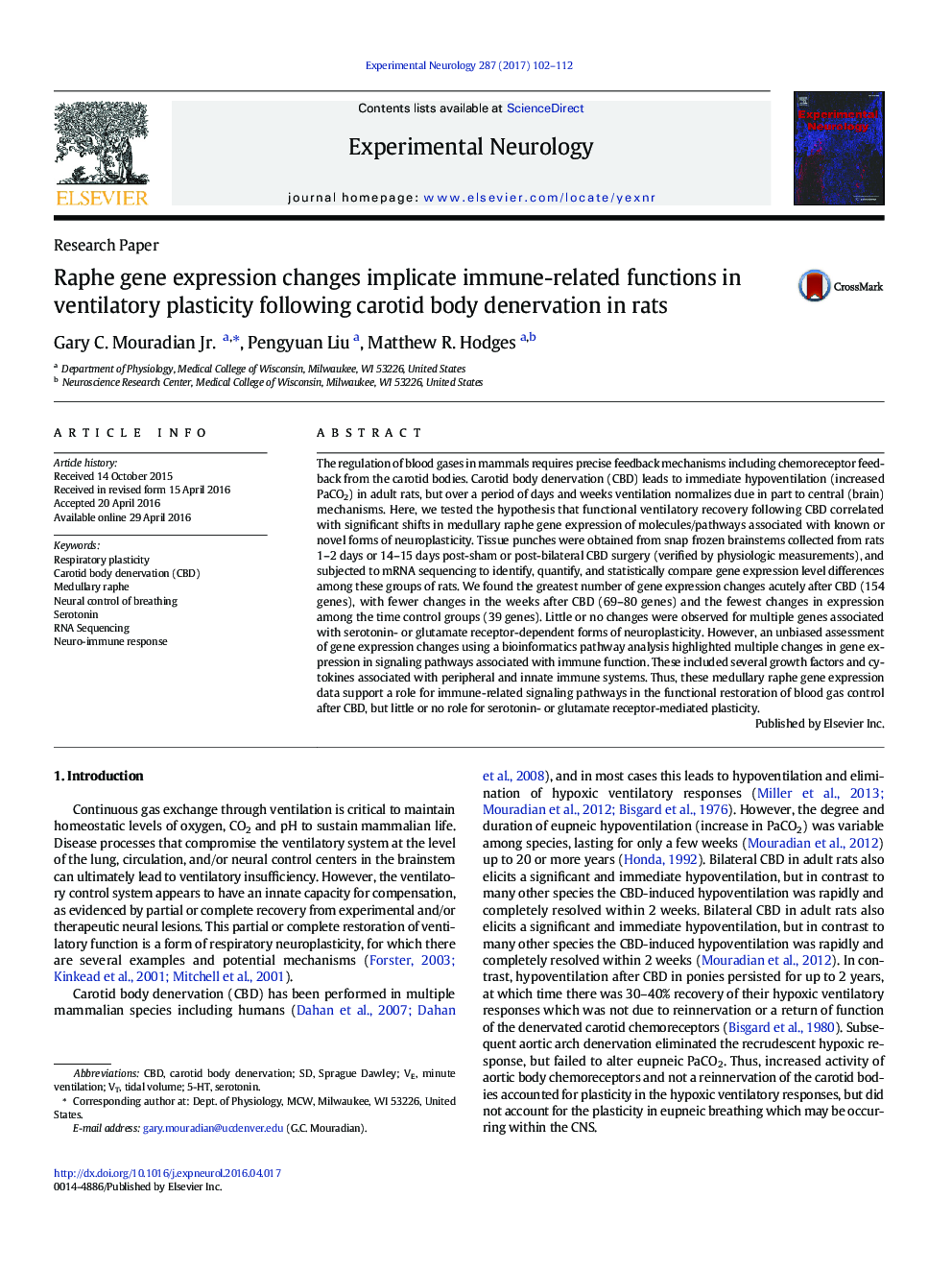| Article ID | Journal | Published Year | Pages | File Type |
|---|---|---|---|---|
| 5629212 | Experimental Neurology | 2017 | 11 Pages |
The regulation of blood gases in mammals requires precise feedback mechanisms including chemoreceptor feedback from the carotid bodies. Carotid body denervation (CBD) leads to immediate hypoventilation (increased PaCO2) in adult rats, but over a period of days and weeks ventilation normalizes due in part to central (brain) mechanisms. Here, we tested the hypothesis that functional ventilatory recovery following CBD correlated with significant shifts in medullary raphe gene expression of molecules/pathways associated with known or novel forms of neuroplasticity. Tissue punches were obtained from snap frozen brainstems collected from rats 1-2Â days or 14-15Â days post-sham or post-bilateral CBD surgery (verified by physiologic measurements), and subjected to mRNA sequencing to identify, quantify, and statistically compare gene expression level differences among these groups of rats. We found the greatest number of gene expression changes acutely after CBD (154 genes), with fewer changes in the weeks after CBD (69-80 genes) and the fewest changes in expression among the time control groups (39 genes). Little or no changes were observed for multiple genes associated with serotonin- or glutamate receptor-dependent forms of neuroplasticity. However, an unbiased assessment of gene expression changes using a bioinformatics pathway analysis highlighted multiple changes in gene expression in signaling pathways associated with immune function. These included several growth factors and cytokines associated with peripheral and innate immune systems. Thus, these medullary raphe gene expression data support a role for immune-related signaling pathways in the functional restoration of blood gas control after CBD, but little or no role for serotonin- or glutamate receptor-mediated plasticity.
